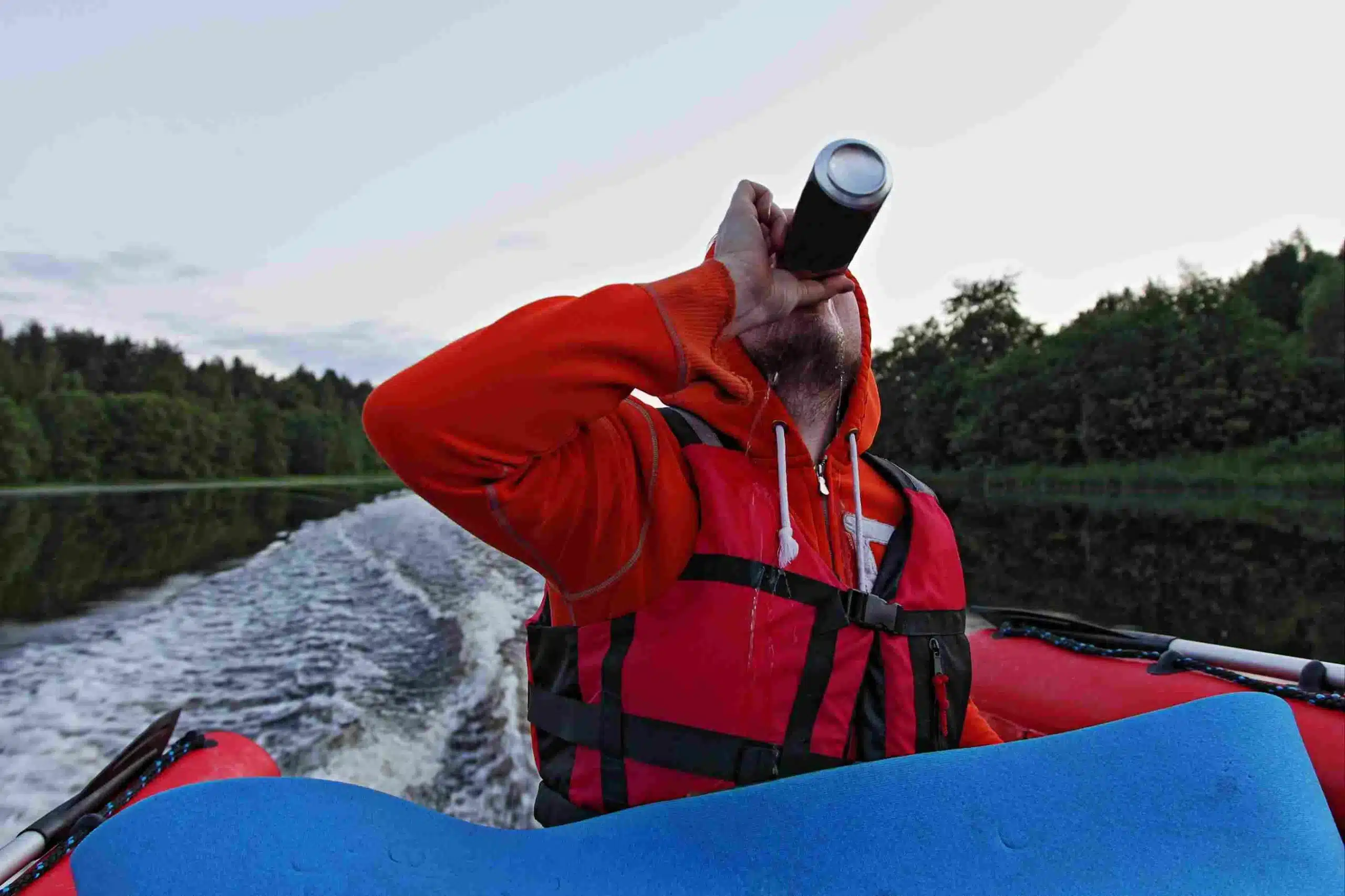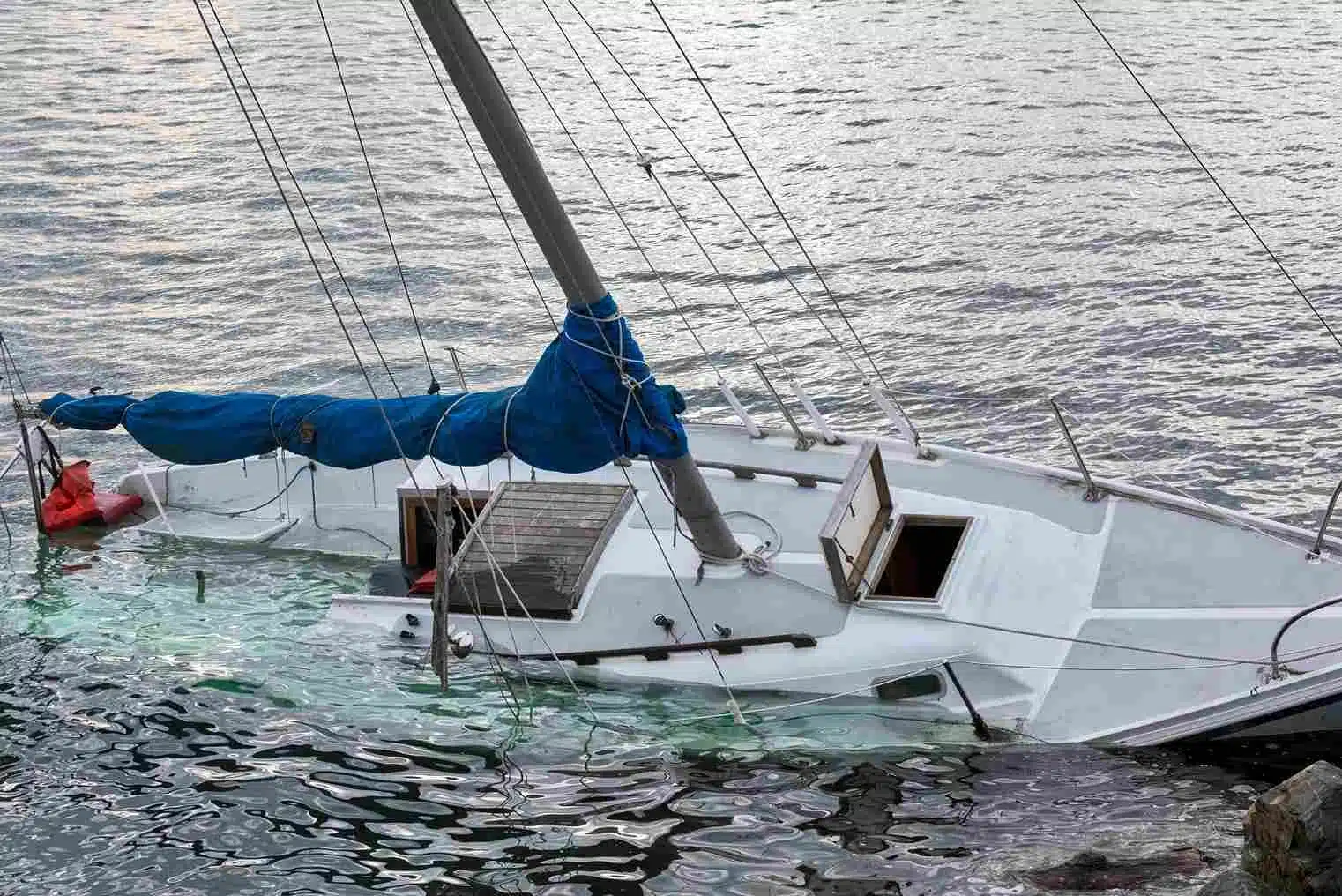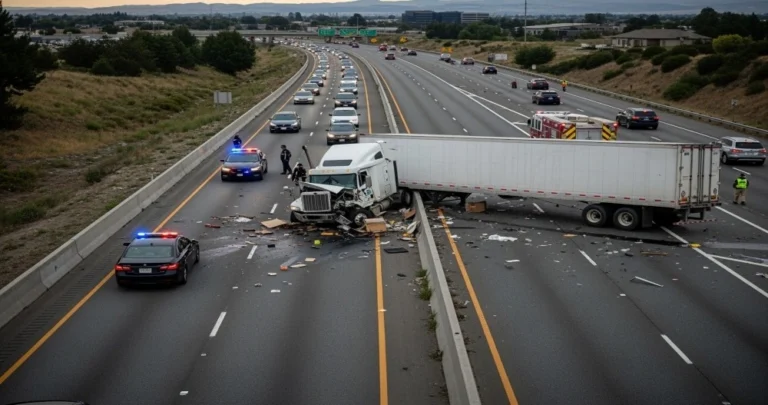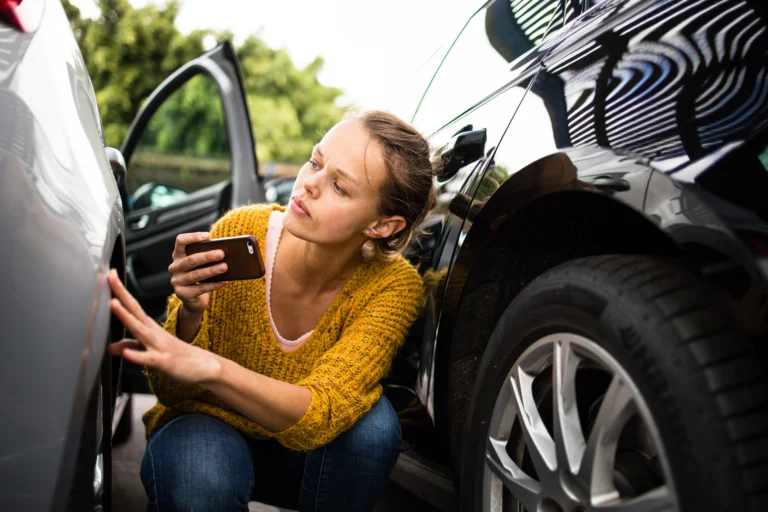Boating is a way of life in Richmond. Whether you’re out on the James River or enjoying a quiet day at a local lake, there’s no shortage of ways to enjoy Virginia’s natural beauty. But a relaxing day on the water can quickly become a nightmare when negligence, inexperience, or poor judgment leads to a serious boat accident.
If you or someone you love was injured in a boating accident in Richmond, you need a Richmond accident lawyer who understands not just the law, but the realities of water-related injuries. At The Johnson Injury Firm, we have successfully helped victims across Virginia navigate the complex legal aftermath of boating injuries. Our team has the knowledge and resources to pursue justice—and we’re not afraid to take on insurance companies or negligent operators.
The Johnson Injury Firm Is Ready to Help
Attorney Connor Johnson brings a sense of personal commitment to every client he represents. After beginning his legal career in criminal defense, he shifted his focus to civil litigation and personal injury law, earning a reputation for clear communication and aggressive representation. He’s not just your attorney—he’s your advocate when the waters get rough.
Attorney J. Penn Crawford has nearly two decades of experience litigating complex personal injury claims throughout Virginia. His sharp legal mind and courtroom tenacity have earned him the trust of clients and the respect of opposing counsel. Virginia Super Lawyers has recognized him and holds a perfect rating on Avvo, a testament to his professional authority and proven results.
As one recent client shared:
“Connor and Penn were there every step of the way. They answered our questions, fought for what we deserved, and made us feel like we mattered—not just our case, but as people.”
When it comes to boating injury attorneys in Richmond, our firm combines local insight, legal skill, and client-first values. If you’ve been injured in a boating accident in Richmond, don’t try to navigate the legal process alone. Let us help you chart a course toward the compensation and accountability you deserve.
Common Causes of Boat Accidents in Richmond and Surrounding Areas
Boating accidents can happen anywhere, but Richmond’s unique mix of riverways, reservoirs, and recreational lakes makes our region particularly prone to serious watercraft incidents. Whether you’re operating a motorboat, jet ski, or pontoon, a moment of negligence can lead to devastating injuries.
At The Johnson Injury Firm, our attorneys have investigated many boating accidents throughout Richmond and Central Virginia. Understanding the common causes of these incidents is the first step toward identifying liability and securing compensation.
Leading Causes of Boating Accidents in Virginia
Here are the most frequent factors contributing to boat crashes and water-related injuries in the Richmond area:
- Operator Inexperience: Many boaters are not licensed or formally trained, which increases the likelihood of poor judgment, misreading water conditions, or failing to respond in emergencies.
- Boating Under the Influence (BUI): Alcohol and drug use are major risk factors in Virginia boating accidents. Under state law, it’s illegal to operate a watercraft with a blood alcohol content (BAC) of 0.08% or higher, just like with motor vehicles.
- Speeding or Reckless Operation: High-speed maneuvers, improper turns, and failure to keep a lookout can result in collisions with other boats, swimmers, or fixed objects.
- Mechanical Failures: When engines fail or safety systems malfunction, the consequences can be life-threatening, especially in deep or fast-moving water.
- Poor Weather or Visibility: Sudden storms, fog, and rough waters are common hazards that can lead to capsizing or collisions if boaters aren’t prepared.
- Failure to Provide Life Jackets or Safety Equipment: Virginia law requires boats to be equipped with proper flotation devices. Many fatal accidents involve passengers who weren’t wearing life jackets.
The Numbers Don’t Lie
According to the Virginia Department of Wildlife Resources, the state sees dozens of boating accidents each year, many resulting in severe injuries or fatalities. Inattention, alcohol use, and equipment failure consistently rank among the top reported causes.
These aren’t just statistics—they’re real events with lasting consequences. If you or a loved one was harmed in a boating incident, our Richmond boating injury attorneys will work to uncover exactly what went wrong and who is at fault.
Injuries Commonly Sustained in Watercraft Accidents
Unlike car crashes, boating accidents often involve two environments—air and water, which makes the injuries more unpredictable and sometimes more deadly. Victims are often thrown from the boat, struck by propellers, or submerged for dangerous lengths of time. These incidents can leave lasting physical and emotional damage.
At The Johnson Injury Firm, we’ve seen how a day on the water can turn into a lifetime of recovery. That’s why we fight for full compensation—not just for emergency care, but for every subsequent consequence.
Serious Injuries Resulting from Boating Accidents
Some of the most common and catastrophic injuries include:
- Traumatic Brain Injuries (TBI): Impact with the boat, water, or a submerged object can cause head trauma. Even a brief loss of oxygen during near-drowning can result in permanent cognitive damage.
- Spinal Cord Injuries: A sudden jolt or ejection from the boat can damage the spine, potentially leading to partial or complete paralysis. These injuries often require lifelong care and adaptive equipment.
- Fractures and Orthopedic Damage: Collisions and falls can cause broken bones, torn ligaments, and dislocations—especially in the arms, legs, and hips.
- Lacerations and Burns: Propeller strikes, fuel spills, and engine malfunctions can cause deep cuts and serious burns that may require surgical treatment.
- Drowning and Near-Drowning: These are among the most feared outcomes. Lack of flotation devices, panic, or unconsciousness can result in fatalities or severe brain damage from oxygen deprivation.
The Emotional Impact Can’t Be Ignored
Physical injuries are only part of the equation. Many survivors suffer from anxiety, post-traumatic stress disorder (PTSD), and depression. It’s not uncommon for victims to avoid the water altogether or struggle with social and occupational functioning after the incident.
We take those impacts seriously. Attorneys Connor Johnson and J. Penn Crawford understand that a personal injury isn’t just about broken bones—it’s about broken routines, plans, and peace of mind. That’s why we work to include both physical and emotional harm in every claim we build.
If you’ve been injured on the water in Richmond, don’t wait to get help. We’re ready to protect your rights and pursue the compensation you need to move forward.
Who Can Be Held Liable After a Richmond Boat Accident?
One of the most critical steps after a boating injury is determining who is legally responsible. Liability in boat accidents is often more complex than in motor vehicle crashes. Multiple parties may be at fault, and each will try to shift the blame.
At The Johnson Injury Firm, we investigate every angle to identify negligent parties and hold them accountable. Our legal team, led by Connor Johnson and J. Penn Crawford, has decades of combined experience pursuing claims against private individuals, companies, and insurers in complex accident cases—including those involving watercraft.
Potentially Liable Parties in a Boat Accident
Depending on the facts of the case, one or more of the following may be responsible:
- The Boat Operator: If the person driving the vessel was under the influence, speeding, distracted, or inexperienced, they can be liable for your injuries.
- Boat Rental Companies: Rental operators may be at fault for failing to maintain equipment, ignoring safety requirements, or not adequately training renters. If you were hurt using a rented watercraft, the company’s negligence could play a role.
- The Manufacturer: Under product liability laws, the manufacturer or distributor may be liable if a mechanical failure, such as an engine defect or steering malfunction, caused the crash.
- Another Boat Owner or Operator: If another boater hits your vessel, especially in crowded areas like the James River or public marinas, their negligence may be the basis of a personal injury claim.
- A Government Entity: In rare cases, poor waterway maintenance, missing warning signs, or debris could implicate a public agency, though these claims require special procedures under Virginia law.
Understanding Comparative Negligence in Virginia
Virginia follows a pure contributory negligence rule—meaning if you are found even 1% at fault for the accident, you may be barred from recovering damages. This harsh standard makes it especially important to have experienced legal representation.
We can present strong, evidence-backed cases that protect our clients from unfair blame. Our attorneys dig into reports, witness statements, and forensic data to tell the whole story of what happened—and why you shouldn’t be left to carry the burden.
The Johnson Injury Firm combines local knowledge of Richmond’s waterways with a proven track record of holding negligent parties accountable. If you were injured in a boating accident, we’ll fight for the justice you deserve—no matter how complicated the case may seem.
What to Do Immediately After a Boat Accident
The moments after a boating accident can be chaotic and confusing. Between physical injuries, water hazards, and the shock of the event, it’s easy to feel overwhelmed. But the steps you take in the aftermath can impact your health, safety, and legal rights.
At The Johnson Injury Firm, we guide clients through this critical phase with clarity and care. Here’s what you should do to protect yourself and your future claim.
1. Get Medical Attention Right Away
Even if you don’t feel hurt, injuries from water-related accidents can be deceptive. Internal bleeding, head trauma, or water inhalation might not show immediate symptoms. Always err on caution and get evaluated by a healthcare provider.
2. Report the Accident
In Virginia, boating accidents must be reported to the Virginia Department of Wildlife Resources if:
- Someone is injured beyond first aid,
- There is a fatality,
- A person disappears from the vessel,
- Or property damage exceeds $2,000.
Filing a report isn’t just a legal requirement—it creates essential documentation that can support your case.
3. Document Everything You Can
If you are physically able:
- Take photos of the boats, injuries, and location.
- Get names and contact info of witnesses and all operators involved.
- Write down everything you remember while it’s still fresh.
This evidence can make a significant difference when it’s time to prove liability or respond to disputes.
4. Avoid Giving Statements to Insurers
Insurance companies often try to get you to make recorded statements before you’ve spoken to an attorney. Politely decline and refer them to your legal representative. Remember, their goal is to protect their bottom line, not yours.
5. Contact a Trusted Richmond Boat Accident Lawyer
Don’t go through this alone. A knowledgeable attorney can guide you through the legal process, preserve critical evidence, and begin building a case while you focus on healing.
Connor Johnson and J. Penn Crawford are ready to take your call. Whether it’s a private boating incident or an accident involving a rental, they know the local laws, the courts, and the strategies that work in Richmond and throughout Virginia.
What Your Boat Accident Claim Could Be Worth
After a serious boating accident, most victims are left asking two big questions: How will I pay for all of this? And What is my case worth? The answers depend on the extent of your injuries, the accident’s circumstances, and your legal team’s skill.
At The Johnson Injury Firm, we don’t just fight for fast settlements—we fight for full and fair compensation that reflects the actual cost of your recovery. That includes more than just your medical bills.
Types of Damages You May Be Entitled To
Boat accident claims often include both economic and non-economic damages:
Economic Damages
- Medical expenses (hospital stays, surgeries, rehabilitation, medications)
- Future medical care for long-term injuries or permanent disability
- Lost wages due to time away from work
- Loss of earning capacity if you can no longer return to your job
- Property damage (to the vessel or personal belongings)
Non-Economic Damages
- Pain and suffering
- Mental anguish or trauma
- Loss of enjoyment of life
- Scarring or disfigurement
- Loss of consortium in cases involving a spouse or family member
If the accident resulted in a fatality, surviving family members may also be eligible to pursue wrongful death damages, including funeral costs and loss of companionship.
Every Case Is Unique—And So Is Every Outcome
No two accidents are exactly alike, which means the value of your claim will depend on the evidence, the extent of your injuries, and the clarity of liability. Insurance companies often try to minimize payouts by downplaying injuries or shifting blame. That’s where we come in.
Connor Johnson and J. Penn Crawford are known throughout Richmond for their ability to build strong, evidence-based cases that get results. Whether through negotiation or trial, we fight for compensation that truly reflects what you’ve lost—and what it will take to rebuild.
As one former client said:
“They took the time to understand how the injury affected every part of my life—and they ensured the insurance company did too.”
When your future is on the line, don’t settle for less than what your case is worth. Let our team protect your rights and pursue the financial recovery you deserve.
Why Choose The Johnson Injury Firm for Your Richmond Boat Accident Case

Our attorneys bring together extensive experience, deep local knowledge, and a personal approach that’s hard to find elsewhere in Richmond.
Experience You Can Trust
Connor Johnson is known for his calm, strategic approach to personal injury litigation. With a He brings a sharp eye for detail and a relentless focus on client advocacy, taking the time to explain the legal process in plain English and ensures that every client knows where their case stands—every step of the way.
Penn Crawford has practiced law in Virginia for years and has litigated hundreds of personal injury cases, from car crashes to complex liability claims. He’s been recognized by Virginia Super Lawyers and maintains a 10.0 Avvo rating, reflecting his legal skill and commitment to clients. His experience handling high-stakes cases gives our firm the edge regarding strategy and results.
Together, they form a team respected in Richmond courts, trusted by clients, and feared by insurance companies.
What Sets Us Apart
- Local knowledge of Richmond’s waterways, boating regulations, and court system
- Direct access to your attorney—not just an assistant
- Client-first communication—we listen before we act
- A proven record of maximizing compensation for injury victims
We understand that a boating accident can upend every part of your life. That’s why we work tirelessly to ease the legal burden while fighting for the compensation you need to move forward.
At The Johnson Injury Firm, you’re not just a case file—you’re a person who deserves to be heard, respected, and restored.
Frequently Asked Questions About Richmond Boat Accidents
Do I need a lawyer after a boat accident in Richmond?
Yes. Boating accidents involve complex liability issues and Virginia’s contributory negligence rule, which can prevent you from recovering damages even if you’re only 1% at fault. A lawyer will protect your rights, investigate the accident, and help you recover the full compensation you deserve.
Who pays for my injuries after a boating accident?
It depends on who caused the accident. Compensation may come from the boat operator’s insurance, the rental company’s liability coverage, a manufacturer’s product liability policy, or your uninsured boater coverage. An attorney can identify all available sources of compensation.
How long do I have to file a claim in Virginia?
In most cases, the statute of limitations for personal injury claims in Virginia is two years from the accident date. However, claims involving government entities or wrongful death may have different deadlines. Don’t wait—delays can harm your case.
What if the boat operator was a friend or family member?
You can still pursue a claim without suing them personally. Most cases involve negotiating with their insurance company, not taking them to court. Our firm handles these situations with discretion and compassion.
Can I still file a claim if I wasn’t wearing a life jacket?
Possibly. Virginia law requires boaters to have life jackets on board, but adults are not always required to wear them. Not wearing one might be used against you, but it doesn’t automatically disqualify your claim. A lawyer can help you navigate this issue.
Bodies of Water Where Boat Accidents Commonly Occur Around Richmond
Richmond and the surrounding region offer beautiful waterways, but they also carry a risk of boating collisions, drownings, and personal watercraft accidents.
Some of the most common sites where we see boating injuries include:
James River
The James River is one of the busiest boating areas in Central Virginia. Accidents often occur due to crowded conditions, strong currents, and intoxicated or inexperienced operators. Fast-moving sections near downtown Richmond are especially hazardous.
Lake Chesdin
Popular for fishing, skiing, and pontoon boating, Lake Chesdin sees frequent weekend traffic. Collisions and capsizing incidents are common, particularly in areas with limited visibility and narrow passages.
Swift Creek Reservoir
Used for both recreation and drinking water supply, Swift Creek Reservoir is a hot spot for kayaking, paddleboarding, and smaller boats. Accidents here often involve sudden weather shifts or collisions near shoreline homes.
Dutch Gap Conservation Area
This area attracts both motorized and non-motorized watercraft. With its narrow channels and mix of skill levels, it presents a risk for side-swipes, tipping, or injuries due to operator error.
Appomattox River
Though calmer than the James, the Appomattox River still presents risks—especially in sections where visibility is reduced and recreational traffic overlaps with fishing or rowing.
Our legal team understands these local waterways and the unique challenges they present. If you were injured while boating on any of these bodies of water, we know how to build a case that considers location-specific risks.
The Water May Be Unforgiving—But So Are We in Pursuit of Justice
A boat accident can leave you physically injured, emotionally shaken, and financially overwhelmed. But you don’t have to face the aftermath alone. At The Johnson Injury Firm, we bring together experience, compassionate guidance, and an unshakable commitment to doing what’s right for every client we serve.
Whether your injuries occurred on the James River, at Lake Chesdin, or on any of Richmond’s scenic waterways, our legal team—Connor Johnson and J. Penn Crawford—is ready to step in, investigate, and hold the responsible parties accountable. We don’t back down from complex cases. And we won’t let insurance companies devalue what you’ve been through.
If you’ve been injured in a boating accident, now is the time to take action. Every day you wait could impact the strength of your claim and your ability to recover fair compensation.
Contact The Johnson Injury Firm today for a free consultation. Let us help you move forward with clarity, confidence, and the legal support you deserve.





